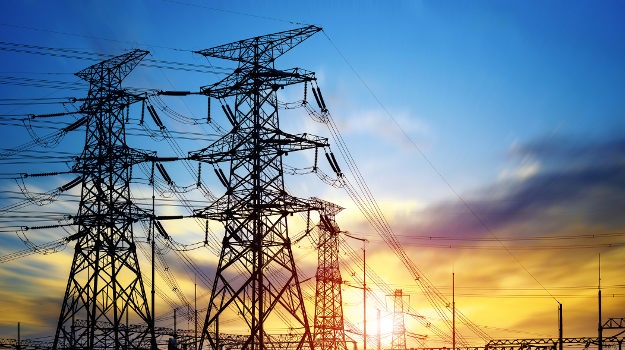
Workers must fight to get shares in the SOEs alongside private sector players and the state in a shareholding system that balances the commercial imperative and general wellbeing of the economy, writes Mpumelelo Mkhabela.
The public attention about the deteriorating financial position of heavily indebted state-owned enterprises (SOEs) has so far been directed at the government, and not the other important stakeholder – unions.
The status and future of SOEs is one of the issues that, bar our thoroughly incapable Public Protector, often triggers passionate debates among those who follow current affairs.
Should the SOEs that drain the fiscus be privatised? Finance Minister Tito Mboweni and many private sector analysts think so. On the other hand, unions who organise in these SOEs would oppose anything close to privatisation. If anything, unions love the big visible hand of the state to hover around everything.
We know that one of the causes of current problems in SOEs is a state that has been incapable of effectively managing them. The strategic importance of the SOEs has been overshadowed by inefficiency, poor governance, bureaucracy, muddled reporting lines, corruption and crippling debt.
Despite the failure of the state, unions are quick to blame the evils of the market and demand state ownership where the state is not involved. Any suggestion that SOEs should aim to be profitable and to stand on their own instead of surviving on fiscal bailouts doesn't get traction.
Profit is a swear word among unions. They consistently play a defensive role when representing their members in both public and private sectors. At the heart of the defensive posture is protecting existing jobs usually through threats to go on strike.
To be fair, this is understandable given the historic role of unions in their fight against exploitation. But conservatively sticking to this approach even when circumstances are not suitable for it is not a wise strategy, particularly in the current economic environment where jobs continue to be shed anyway.
Except for a few instances of whistle blowing and litigation, the unions have not played a significant role to avert the crises at SOEs. Now they are seen as a stumbling block to much-needed restructuring. Any talk of restructuring inevitably leads to a discussion about retrenchment.
This talk could be the reason unions become defensive – an approach that will eventually become blunt if the government approaches the International Monetary Fund (IMF) for financial assistance that will come with conditions for downsizing.
The crises facing SOEs mean unless they become profitable and stop relying on government financial support, two things would be inevitable: bankrupting of the fiscus which is already in negative territory and IMF-imposed terms of restructuring.
3 things unions can do
So, what can unions do? The first thing they need to do is change their mindset about profit. They must accept that companies must make profit to stay in business, grow and create more employment opportunities.
The second step they need to take is get involved in the crafting of solutions for the ailing SOEs. They should fight to secure a role in decision-making especially where they can influence the direction of the company. This requires that unions review their mandates to include influencing the strategies of these companies.
Some unions have members who are very experienced. They understand the business better than some of the executives who get hired only to be ejected by a stressful environment or as a result of their own failures. The expertise of the workers should be utilised through unions.
The third step would be for union leaders to work with leaders of the SOEs in a collaborative manner instead of the "us and them" approach. Threats of strikes result in short-term gains and on their own are unhelpful. Unions have to have reliable and regular access to information about the state of the SOEs to make a meaningful contribution in turning them around.
For the unions to play a proactive role instead of the largely unhelpful defensive role they have so far, the government has to change the way SOEs are structured and cease to be a monopoly shareholder.
In addition to looking for relevant strategic private partners who will inject capital and skill, the government must also give shares to workers. If the government can require mining companies to give 5% shares to workers as part of the new mining charter, surely it too can do it and show the way. The SOEs are a good platform to demonstrate.
State does not guarantee workers' interests
It is now clear that despite the preference by unions for everything owned by the state, the truth is that the state does not always guarantee workers' interests in the way it manages the SOEs.
If the SOEs go bust now because of the cumulative state failures, hundreds of thousands of jobs will be shed. There will be no room to call for state intervention. The unions might as well participate in the management as well as the sharing of profits with workers in the SOEs.
If the unions in SOEs don't want what they call the neo-liberal policies of the IMF to affect them, materially as well as ideologically, they should demand restructuring of these companies now in ways that give them shares, decision-making powers in the form of seats on the boards as well as clear profit-sharing mechanisms.
Giving workers shares can be a sweetener in a rescue package that includes invitation of strategic private sector partners to invest in the SOEs. The government can retain varying stakes in the SOEs.
In this way, workers will have an interest in the long-term sustainability of the SOEs. They won't sit back and allow state capture to happen only to demand higher salaries later in a manner akin to milking a dead cow, or worsen the already dire situation in SOEs by embarking on strikes.
The failure of the "us and them" approach between workers and leadership of SOEs became evidence recently. When Eskom suggested it would not afford salary increases until it had cleaned up the corruption, some of the unions said workers should not be blamed for state capture.
This kind of reasoning should change so that workers play a part in fighting evils like state capture. They should have stakes in these companies and stand as a shield against state capture. They in turn will benefit from entities that are profitable, can afford generous salary increases and regularly pay dividends.
At South African Airways and the Post Office, unions were shocked at the premature departure of CEOs who were recruited to turn around those companies.
The SA Cabin Crew Association and National Union of Metalworkers of SA at SAA belatedly and unsuccessfully demanded CEO Vuyani Jarana to be reinstated. They had confidence in him. But they had no voice on the board and have no stake in the business other than employment. Whatever ideas they might have had to assist in the turnaround of the airline went to waste. They ended up picketing hopelessly like outsiders.
At the Post Office, the Communications Workers Union acknowledged the progress made under CEO Mark Barnes to turn the company around. Clearly they could see a future in the horizon. But like their counterparts at SAA, they lacked a voice in the decision making.
Workers must fight to get shares in the SOEs alongside private sector players and the state in a shareholding system that balances the commercial imperative and general wellbeing of the economy.
Should retrenchments become inevitable, those affected will keep their shares and will stand to benefit after the turnaround. It's time to think out of the proverbial box.
- Mkhabela is a regular columnist for News24.
** Want to respond to the columnist? Send your letter or article to voices@news24.com with your name, profile picture, contact details and location. We encourage a diversity of voices and views in our readers' submissions and reserve the right not to publish any and all submissions received.
Disclaimer: News24 encourages freedom of speech and the expression of diverse views. The views of columnists published on News24 are therefore their own and do not necessarily represent the views of News24.




 Publications
Publications
 Partners
Partners























